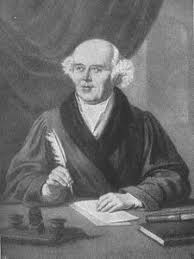
"What is homepothic medicine" is a frequent question I am often asked and it is one that is difficult to answer in just a few words. Hopefully, what I'm about to explain will clear up some of the questions you may have. First, homeopathy has been a safe, effective system of medicine used by millions of people worldwide for over 200 years. Homeopathic medicines are prepared from natural sources and are used in extremely small amounts. They are recognized as drugs by the U.S. Food and Drug Administration (FDA). They are non-toxic and, when used properly, can be safely used with infants, children, adults, and yes, your pets.
Homoepathy is based on the principle that "like cures like." That is,
if a substance can cause symptoms in a healthy person, then it can stimulate self healing of similar symptoms in a sick person. Suppose a person has hay fever, with watery eyes and a burning nasal discharge, a homeopath might prescribe Allium Cepa (a tiny dose of red onion), especially prepared by a homeopathic pharmacy in accordance with FDA approved guidelines, because onion is known to cause watery eyes and a burning nasal discharge. Suppose a person can't sleep because of agitation or an overactive mind. Instead of giving the conventional sleeping pill, a homeopath might give Coffea Cruda which is a homeopathic preparation of coffee.
This principle of similars was developed into a system of medicine
called homeopathy by the German physician Sameul Hahnerman in the late 1700's, but the concept dates back to the time of Hippocrates. The exact mechanism by which homeopathy works is unknown, but 200 years of clinical experience along with research published in such medical journals as The
Lancet, and The British Medical Journal have confirmed Homeopathy's effectiveness.
Homeopathy treats the whole person - physically, mentally and emotionally and
treats each person individually. For example, a homeopath treating a cold sufferer does not presume that all colds are alike, but instead asks about the person's unique symptoms: Is the person chilly or flushed? Is the nose runny or stuffed up? Did the cold come on after stress, anger, loss of sleep? The homeopath tries to get a complete picture of the person's individual experience of the cold. Then the homeopath chooses a homeopathic medicine that best matches this person's unique set of symptoms.
There are no known or suspected contraindications or drug interactions between homeopathic remedies and conventional medications. Most homeopathic medicines are available over the counter. Consumers can learn to treat simple, self limiting conditions safely at home, but serious conditions should be treated by a professional. Most veterinarians and animal caretakers get great results using homeopathic medicines for animals.
Tom Mantos, N.C. (Clinical Nutritionist)
732-219-9636

1 comment:
About 15 years ago my dog had a stroke and homeopathy and Tom's recommendations saved my dogs life - he lived another 2 1/2 quality years as opposed to the alternative we were offered by the vet - which you probably can conclude what that was. I've been a believer and "user" of homeopathic care ever since.
Post a Comment